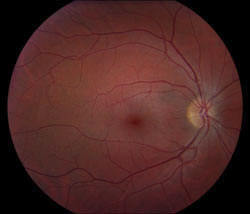

He has published numerous original research articles and book chapters on a wide variety of retinal and ophthalmic topics. Chang is Board certified by the American Board of Ophthalmology. Chang was also actively involved in teaching medical students, residents and fellows and was recognized with a teaching award from the ophthalmology residents.ĭr. In addition to his clinical responsibilities, he was also involved in many clinical, translational and basic science research projects. Chang gained extensive experience with managing complicated surgical cases, including complex retinal detachments. He then joined the faculty at Columbia University, where he was the Helen and Martin Kimmel Assistant Professor of Ophthalmology. Michels Fellowship Foundation award, given to outstanding fellows in vitreoretinal surgery. Chang was a recipient of the Heed Ophthalmic Foundation Fellowship, awarded nationally to top clinical fellows in ophthalmology. Chang then performed a fellowship in medical and surgical diseases of the retina and vitreous at Columbia University in New York City. During residency, he received the resident award for ophthalmic knowledge and the resident award for Excellence in Ophthalmic Surgery. Chang completed his ophthalmology residency at UCLA / Jules Stein Eye Institute. In addition to the standard medical school curriculum, he performed in-depth research for his doctoral thesis on how cells in the nervous system die in various diseases.ĭr. Chang then earned his MD and PhD degrees from Washington University Medical School through the Medical Scientist Training Program. He earned a Bachelor of Science in Biological Sciences from Stanford University, graduating Phi Beta Kappa and with Honors and Distinction. Beyond caring for your eyes, our team ensures you understand each step of the process and feel comfortable in the location you’re receiving care.Jules Stein Eye Institute, UCLA, Los Angeles, CAĭr. are highly educated and highly attentive, meeting the moment with a level of unmatched expertise and compassion. The physicians of Retina Associates, LLC. The Retina Specialists of Retina Associates, LLC. Reasons someone would see a retina specialist include: Similar to the way a primary care doctor may refer a patient to a specialist like a cardiologist or an endocrinologist, an ophthalmologist will often refer a patient to a retina specialist to ensure their specific needs are addressed by a more qualified doctor. If considering it sequentially, it’s highly likely a patient will see an ophthalmologist before seeing a retina specialist. This advanced level of education and training gives retina specialists the unique ability to diagnose and treat macular degeneration, diabetic retinopathy, retinal detachments, macular holes, macular pucker, and vascular occlusive diseases of the eye. Two years in a surgical retina fellowship.In order to become a retina specialist, a physician must complete: What Is a Retina Specialist?Ī retina specialist is a medical doctor who has received advanced specialty training in the field of ophthalmology, as well as in the diagnosis and treatment of eye diseases affecting the retina, macula, and vitreous. To become a general ophthalmologist, one must complete four years of medical school, followed by a one-year internship program and a 3-year ophthalmology residency.įrom there, they may choose to focus on an ophthalmology subspecialty - such as retinal and vitreous care, glaucoma, or ocular oncology - and then complete the advanced training required. Surgical treatment for cataracts or glaucoma.

A prescription for eyeglasses or contact lenses.Reasons someone would see an ophthalmologist include: They offer a broad range of vision-related care, from fitting eyeglasses to performing surgeries. General ophthalmologists are medical doctors trained to diagnose and treat many eye conditions, as well as support patients’ general eye health. Unpacking the care and treatment offered by both can help inform future decision making. There are several types of doctors and specialists across the eyecare spectrum, and understanding what distinguishes them is one step toward a more successful ocular health journey.Ī common cause for confusion is the difference between a retina specialist and a general ophthalmologist. Given the delicate nature of one’s vision – and the anxiety any visual impairment can cause – patients should feel empowered and confident when choosing a provider. Retina Specialist: Defining the Differences


 0 kommentar(er)
0 kommentar(er)
